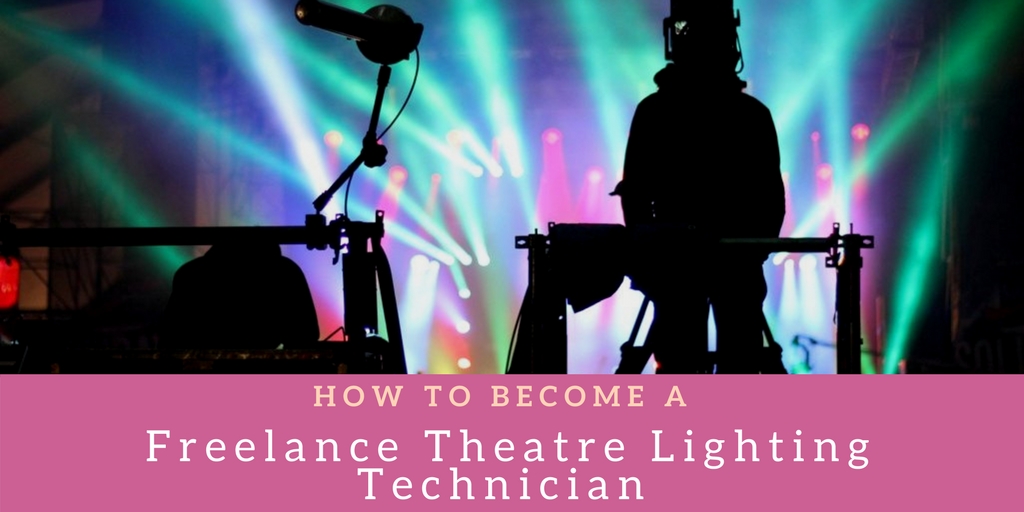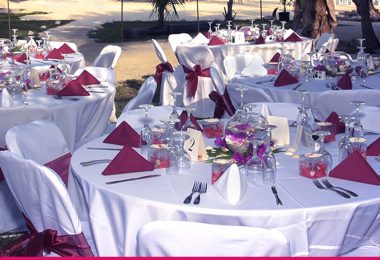
If you are a professional technician and are fascinated by the glory and glamour of the media world, then you can join the industry as an independent lighting technician. In this blog you will learn the nuances of becoming a freelance theatre lighting technician.
Lighting technicians in the media and entertainment industry are responsible for the lighting and sound effects and other technical aspects of theatre performances, TV and Cinema production.
Theatre lighting technicians work with the rest of the technical team where he interprets the visions of producers, directors, stage managers or art directors to produce light and sound effects that meet the expectations of production department.
An electrical and electronic educational background with a creative streak in colour analysis is the basic qualification you would need to ace in this career.
How To Become A Freelance Lighting Technician
As a technician, your job may be as crucial as controlling and regulating all the technical aspects of the production; otherwise it will be mostly limited to lights and sounds for conferences, theatres, cinema, ad shoots, reality shows and TV production.
Specific duties vary depending upon the type of production work – Live or Recorded. Some of the general works of a lighting technician involve;
- Install suitable lights and fixtures according to stage plan or director’s interpretations for productions.
- Chart out or draw the assembling of sound and lighting equipment in the production set.
- Plan for contingencies such as back-up power, like generators.
- Before shooting begins, programme the consoles in to fully automated colour change system.
- Make sure all the equipment, the wirings and power supply are functioning properly.
- Uninstalltheequipment and wind-up the power supply.
- Perform basic maintenance practices.
Like most freelancers and most professionals from the media and entertainment industry, the working hours of a lighting technician will totally depend upon the production schedules. In the beginning of course your work load will be less, but as you continue to associate with more production houses, you will have long days and nights with no rest.
But the fun part is you will get to watch the shoots and filming. So, most definitely, it is not a boring job at all.
Also note that most often you will have to work outdoors in difficult weather conditions. So being physically fit that involves lifting heavy equipment, making steep climbs on cranes and scaffolds, and having a lithe & agile body is very important.
How Can You Secure A Lighting Technician Job?
To secure a job in the industry as a lighting technician, you have to have a basic degree in electrical science. However, you can also pursue a program or course that teaches the skills required in stage electric and lighting designs. Some of these courses are;
- Degree, Diploma or Certificate in Production Arts
- Higher education course in Performing Arts
- Bachelor’s Degree in Architectural Lighting, Lighting Design, Interior Design, Architectural Engineering
Note that, the title of degree may change in each country. So, find and apply for the most suitable one. A bachelor’s degree guarantees an internship, which provides students with hands-on experience on the subject.
You can also join as an assistant and gain immense experience and opportunities while working under professional lighting designers.
You can look for traineeship with budget payments in lighting companies, concert venues, local production houses and community film projects.
Traineeship, although doesn’t provide expected salary range, could help you to gain practical experience as well as the needed qualifications for an appealing portfolio which would let you to impress prospective clients in future.
Remember, unlike other professions, lighting technicians need to have a video or photograph based portfolio that will be a compilation of your previous work, to prove your skill and competency to your clients.
Lighting Technician Salary
Your salary will vary based on your skills, experience and the project requirement. Although, as a freelancer, you will not get a fixed salary but more or less it will fall on the following range. (The salary mentioned here is for USA based technicians)
- Beginners (0 to 4 years’ experience) – $14,000 to $30,000 Per Annum
- Experts (4 and above years) – $30,000 to $70, 000 PA.
Your income will also change dependingupon the industry and difficulty of work. For instance, technicians working in big budget movies and action based reality shows earn more than those working in low budget shows.
Skills That Will Be A Bonus Point For Your Career As A Lighting Technician
Vast knowledge in electronics and electrical systems is not the only essentials to become a professional lighting technician. Besides having them, it is important that you possess the following interests and skills as well;
- Passion to work in the media and entertainment industry
- Good interpersonal and communication skills
- Team management skills
- Creativity to interpret and develop best light and colour combinations
- Cognitive and analytical skills to solve troubleshoots
- Crisis management skills
- Good active listening to understand and work quickly on director’s instructions
- Physical agility, manual dexterity and an ability to work on perilous and precarious places such as heights, bad weather and under water.
How Would Your Career Develop?
In the beginning after you find a job, you will most likely be working as an assistant with an industry expert. Your designation would be ‘Asst. Technician’. With relevant technical courses and programs, you can fast track your career and become an independent Lighting Technician.
However, working under someone will give you experience, no doubt. But it will also help you to understand the way the industry works and pays the consultants.
Lighting trade shows are important platforms that manufactures use to demonstrate their products. Most art lighting director or light designers attend these shows to buy products that create dramatic and unique lighting effects.
Such shows could help you to build network sand establish relationships with designers, lighting managers, stage managers and producers.
With enough experience, creativity and qualification you can progress to become a full time freelance theatre lighting technician in the media industry. With good contacts under your hood, it would be easier to land in high paying jobs.




